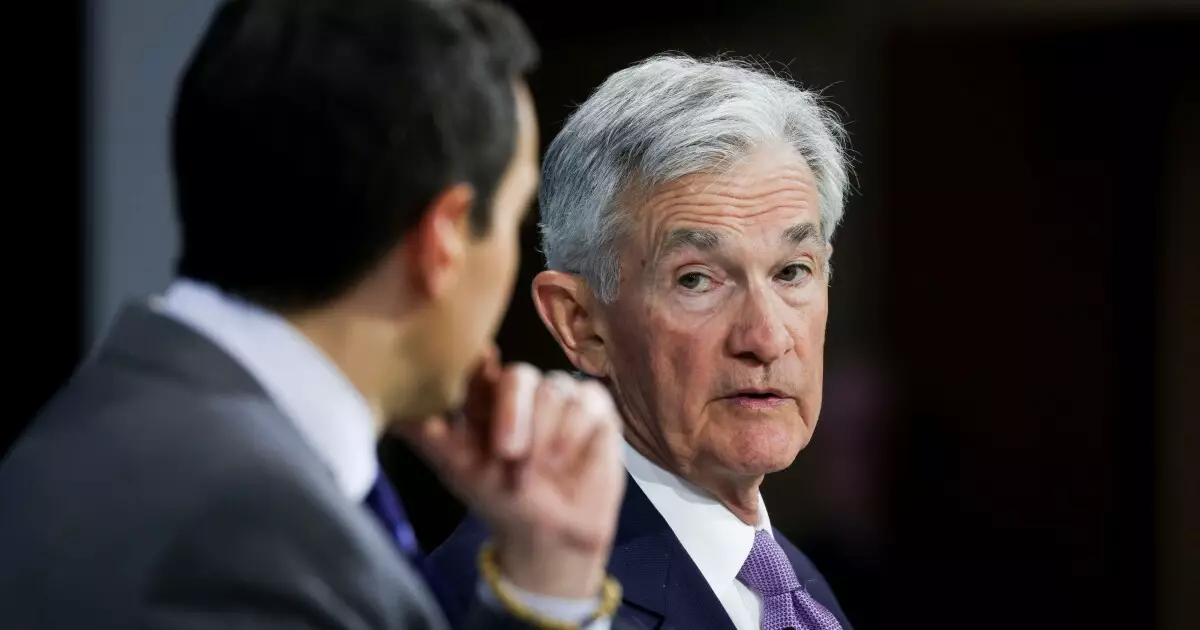In the fluid landscape of U.S. financial policy, the independence of the Federal Reserve remains a topic that garners significant attention, especially during politically charged transitions. Recently, the Fed Chair Jerome Powell addressed concerns about potential challenges to his authority during the Trump administration. This article explores Powell’s insights regarding his role, the anticipated relationship with President Trump, and the implications for U.S. monetary policy.
At the forefront of the discussion is the notion of a “shadow chair,” a concept raised by Scott Bessent, a former hedge fund manager and the anticipated Treasury secretary under Trump. Bessent suggested that Trump could announce a prospective Fed chair candidate ahead of Powell’s term ending in 2026, potentially undermining Powell’s effectiveness during his final year. This concept raises pertinent questions regarding the long-standing tradition of Federal Reserve independence and how such political maneuvers could disrupt established norms.
Powell, however, expressed confidence in the stability of his position, stating that he does not believe such a shadow chair scenario is plausible. His assurance signifies the Fed’s commitment to maintaining autonomy, a critical component of its operational framework. The potential for political interference during a presidential transition could lead to uncertainty in financial markets; thus, Powell’s refraining from engaging in political dialogue emphasizes the sacred demarcation between monetary policy and partisan agendas.
During an appearance at the New York Times’ Dealbook Summit, Powell touched upon the traditional interactions between the Fed and the Treasury, illustrating a foundational aspect of U.S. economic governance. He noted the regular breakfast meetings between the two entities, underscoring the need for mutual respect and understanding. Such relationships are particularly crucial during turbulent economic periods when coordinated efforts can mitigate crisis impacts.
Despite the complexities of working under a new administration, Powell expressed optimism about fostering a constructive partnership with the incoming Treasury secretary. He hinted at an unwavering belief that the established traditions would prevail, insisting on the importance of trust and respect in these interactions. This averred relationship is vital not just in navigating crises but also in ensuring economic stability and confidence among investors.
One of the cornerstones of Powell’s argument is the importance of the Fed’s political independence. He articulated that the Fed must make decisions based on economic conditions rather than political convenience. This independence permits the central bank to enact policies that benefit all Americans without succumbing to pressures or agendas from any singular party. Powell’s comments reflect the institutional framework established by Congress, emphasizing a balance of powers crucial for sound economic governance.
Politically charged statements from Trump regarding monetary policy also surfaced in the discussion; however, Powell opted for a restrained approach, advocating for the separation of the central bank’s functions and electoral politics. This decision speaks volumes about Powell’s commitment to safeguarding the Fed’s integrity, a characteristic that serves as a bulwark against politicization in monetary decisions.
As Powell considers the implications of Trump’s proposed economic policies, particularly concerning tariffs, he remains cautious. The uncertainty stemming from the potential size and scope of the proposed tariffs prevents any preemptive adjustments to monetary policy. Instead, the Fed is focusing on modeling various outcomes to better understand the potential impacts on the economy.
Additionally, Powell discussed the evolving landscape of digital assets, which are poised to emerge as a significant issue under Trump’s presidency. The Fed’s role in regulating the intersection of cryptocurrencies and the banking system is narrow yet critical. Powell reiterated the need for consumer protection in this domain, underscoring the importance of understanding the risks associated with digital financial products.
Navigating the complexities of monetary policy under a politically charged administration poses unique challenges for the Federal Reserve. Jerome Powell’s insights highlight a commitment to maintaining independence while fostering a constructive relationship with the Treasury. As economic uncertainties loom, the Federal Reserve’s steadfastness in its principles will be vital for preserving investor confidence and ensuring the long-term health of the U.S. economy. The balancing act between political influence and central bank autonomy will undoubtedly continue to be scrutinized as the Trump administration unfolds, making Powell’s efforts even more significant in the months ahead.


Leave a Reply